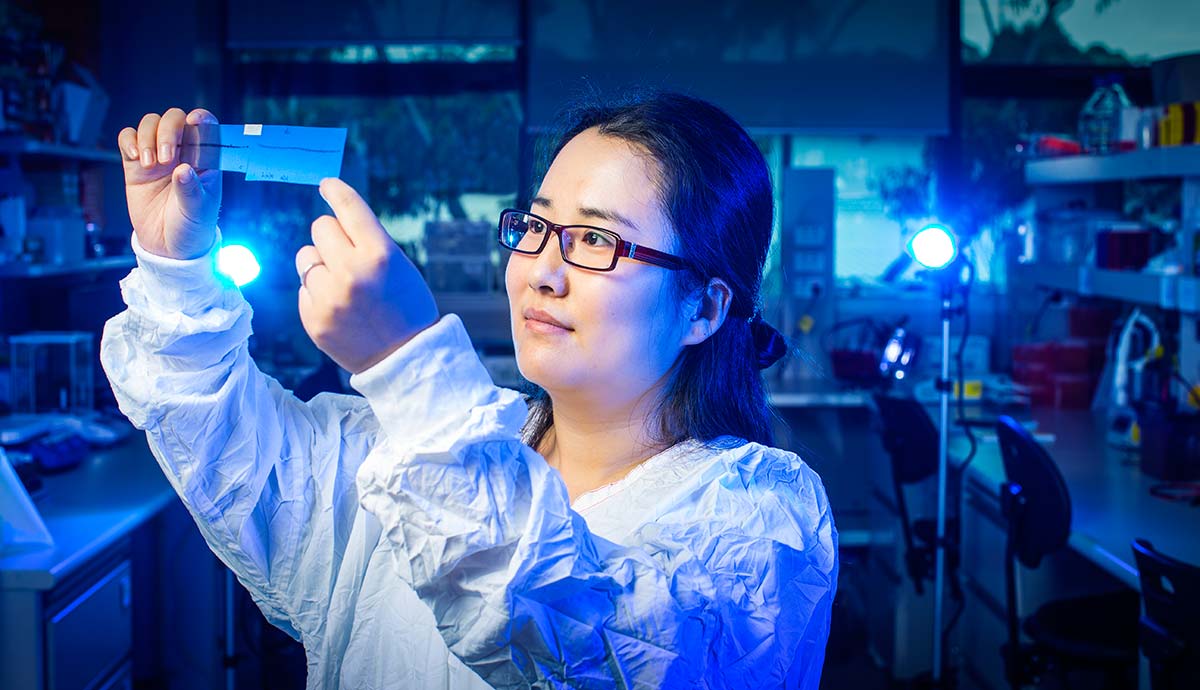November 18, 2016
Study examines impact of antipsychotic drugs on young minds
Prestigious fellowship enables early career researcher to further work on risk of growing use of drugs in childhood
A University of Wollongong (UOW) researcher who is investigating the long-term impact of antipsychotic use in children has been awarded a prestigious fellowship from the National Health and Medical Research Council (NHMRC).
Dr Jiamei Lian (pictured), from UOW’s School of Medicine and Antipsychotic Research Laboratory in the Illawarra Health and Medical Research Institute, received the NHMRC Peter Doherty Biomedical Fellowship, a $318,768 grant that will enable the early career researcher to continue her work in neuropsychopharmacology, a field of science that explores how drugs affect the mind and an individual’s behaviour.
Dr Lian’s research focuses on the impact of antipsychotic drugs on the behaviours and brain function of children and adolescents, an area that is gaining in significance as the use of these drugs continues to increase.
Mental health problems affect approximately nine per cent of Australia’s 4.1 million children, and Dr Lian said, the aim is to help clinicians have a greater understanding of the risk/benefit involved in using these drugs while the brain is still developing.
“Childhood and adolescence is a critical period of brain development that is sensitive to drug exposure,” she said.
“Although antipsychotic drugs were developed to treat schizophrenia symptoms in adults, they have been sharply increased for use (mostly off-label) in children over the past decade. Early drug exposure may cause permanent brain changes that may only present later in adulthood.
“Antipsychotic drugs are increasingly used to treat various mental disorders in paediatric patients; however, there is limited research around the long-term consequences.”
The fellowship will enable Dr Lian to expand her study into the effects of exposure to these types of drugs, commonly prescribed for such conditions as schizophrenia and bipolar disorder.
“Preliminary results in our research lab have shown that antipsychotic treatment in the developing brain will cause long-lasting alterations in adult behaviours and brain functions,” Dr Lian said.
“Under this fellowship, I will further examine how early antipsychotic exposure influences cognitive functions, and whether early drug exposure in developing brains alters their response to antipsychotic treatment in adulthood using an animal model.”
The research could provide crucial information for developing guidelines for the use of these drugs in childhood and adolescents and for paediatricians to reconsider or reassess the benefit of prescribing antipsychotic drugs to young patients.
Dr Lian said she was “extremely honoured” to receive the Peter Doherty Biomedical Fellowship, which runs from 2017-2020.
The fellowship is awarded by the NHMRC to an Australian-based early career researcher of outstanding ability to help them continue their research in the field of biomedical science.
